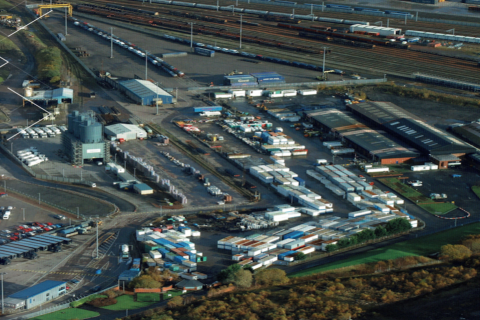Britain on ‘war footing’ for rail strike
A ballot for strike action will see the UK government prioritise the movement of freight trains in a way not seen since the general mobilisation at the outbreak the First World War. The stark warning comes in defiance of an all-out rail strike demanded by unions. British media sources say that plans have been drawn up to see ‘tracks reserved’ for freight services, in order to keep supply chains open and supermarket shelves filled.
With Britain already struggling to cope with disrupted global trade, intermodal congestion at ports on the back of the pandemic, and shortages looming due to the war in Ukraine, the last thing the government needs is a massive industrial dispute. That though is exactly what they have with the ballot in favour of strike action on Britain’s railways.
Unprecedented in peacetime
For the first time in almost a century, freight trains will be given priority over passenger services in order to avoid a food supply crisis. That is the widely reported government response to the strike called by the RMT union, and other significant disputes within the rail industry. Although freight services have had a free run on the tracks as recently as the 2020 lockdown, there has never been a mandate put in place outside of wartime, since the General Strike of 1926.

In consultation with prime minister Boris Johnson, the transport secretary Grant Shapps has drawn up a wartime footing for the railways. However, given the independent nature of the rail freight sector, it is unclear what the government could do to compel operators to cooperate in action which may bring them into direct conflict with the trades unions.
Emergency measures to outlaw strikes
One route open to the government is emergency legislation. However, the RMT union issued what they called a stern warning that they will mount fierce resistance to any attempt by the government to reduce their right to strike on the railways. “Any attempt by Grant Shapps to make effective strike action illegal on the railways will be met with the fiercest resistance from RMT and the wider trade union movement”, said their general secretary Mick Lynch.
The RMT effectively declared their hand by calling a ballot for strike action, over what they identified as plans by Network Rail to reduce ‘safety critical posts’ by 2500. They have since launched a separate dispute in Scotland over pay and conditions, and have been joined in moving towards strike action by other influential unions, notably the 20,000-strong Transport Salaried Staffs’ Association (TSSA), and the union representing train drivers, Aslef.
Unswerving trades unions
Legislation in the UK requires trades unions to ballot their members for a mandate for strike action. The RMT ballot was widely expected to return a vote in favour, but it was only at the weekend, two days before the announcement of the result that the government plans were revealed.

“The government need to focus all their efforts on finding a just settlement to this rail dispute, not attack the democratic rights of working people”, said an unswerving Mick Lynch. “Britain already has the worst trade union rights in Western Europe, and we have not fought tooth and nail for railway workers since our forebears set up the Amalgamated Society of Railway Servants in 1872, in order to meekly accept a future where our members are prevented from legally withdrawing their labour.”
You just read one of our premium articles free of charge
Want full access? Take advantage of our exclusive offer





I think the authorities now, very carefully, should listen to the unions. Dysfunctional supply chains, by some reason, now are seen all over. (BREXIT, was/is a symtom.) A strke now has to be avoided by all means! Regrettably railways has “missed the train”.
A timely Goal has to be set, for Industry, now sustainably to be meet with.
A vital function of society has to be a safely sustainable! Root of disturbings, of sudden unplanned stops decisively has to be outed, etc., etc.!